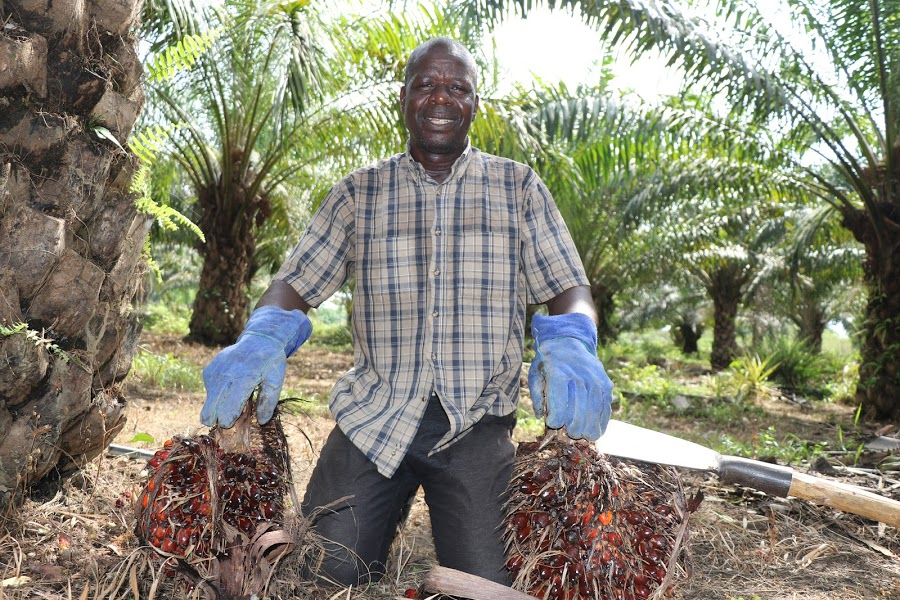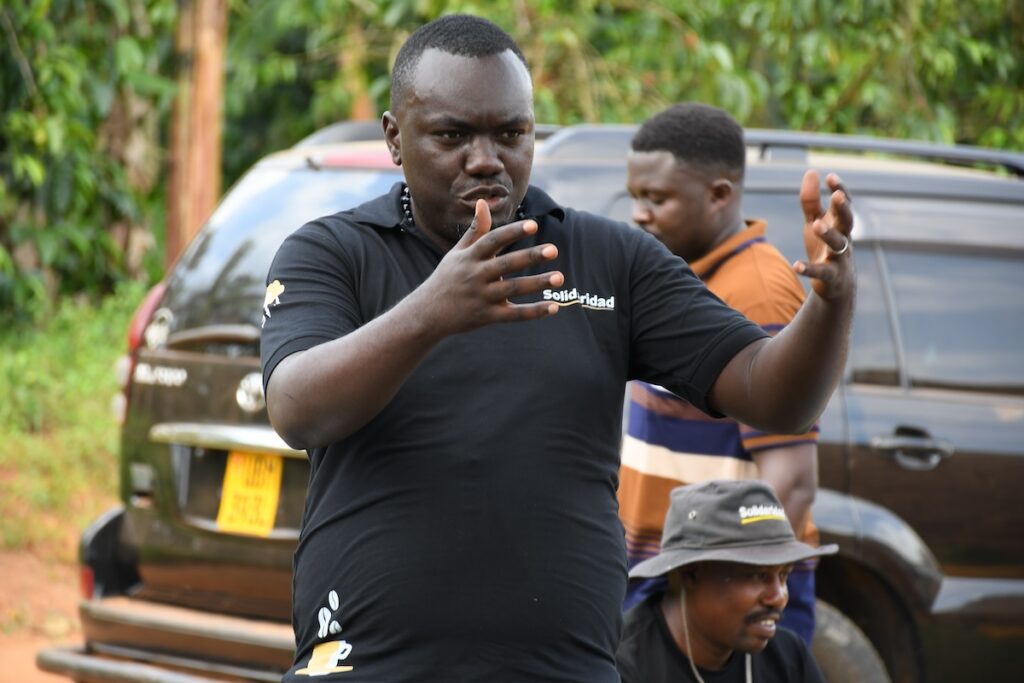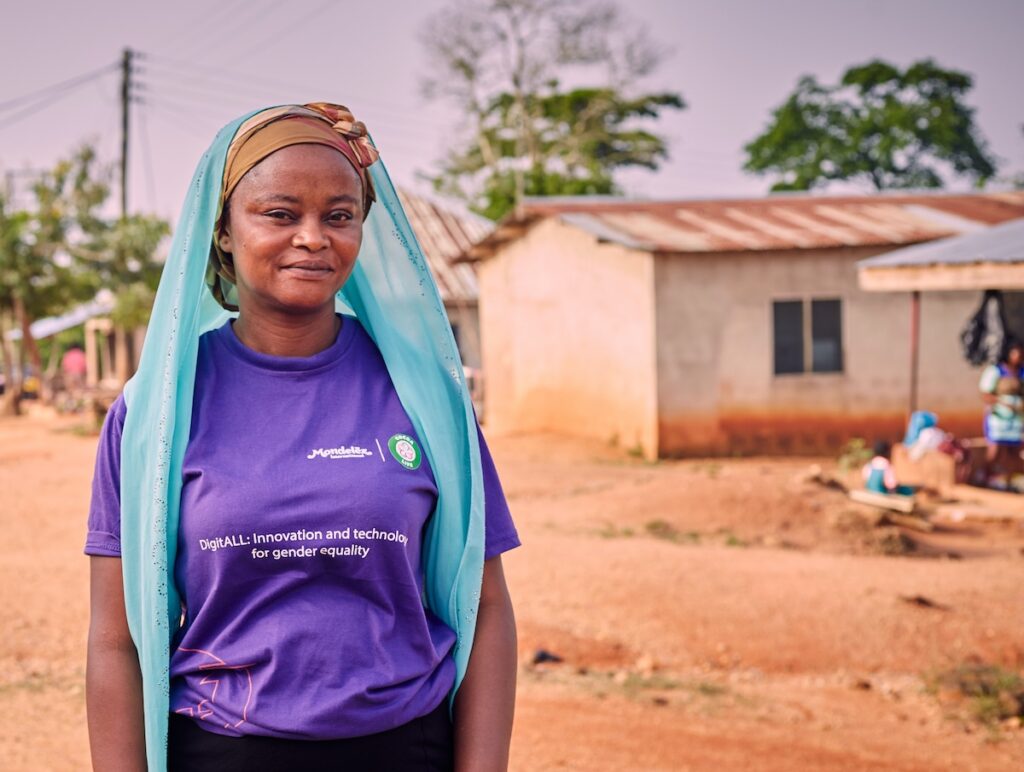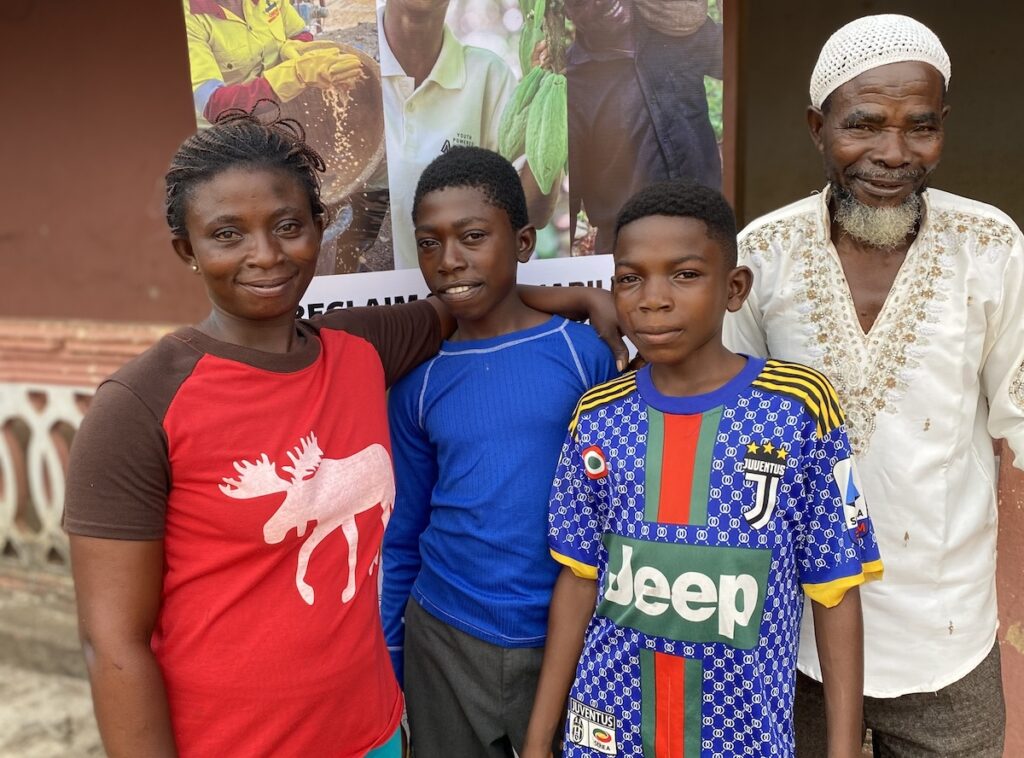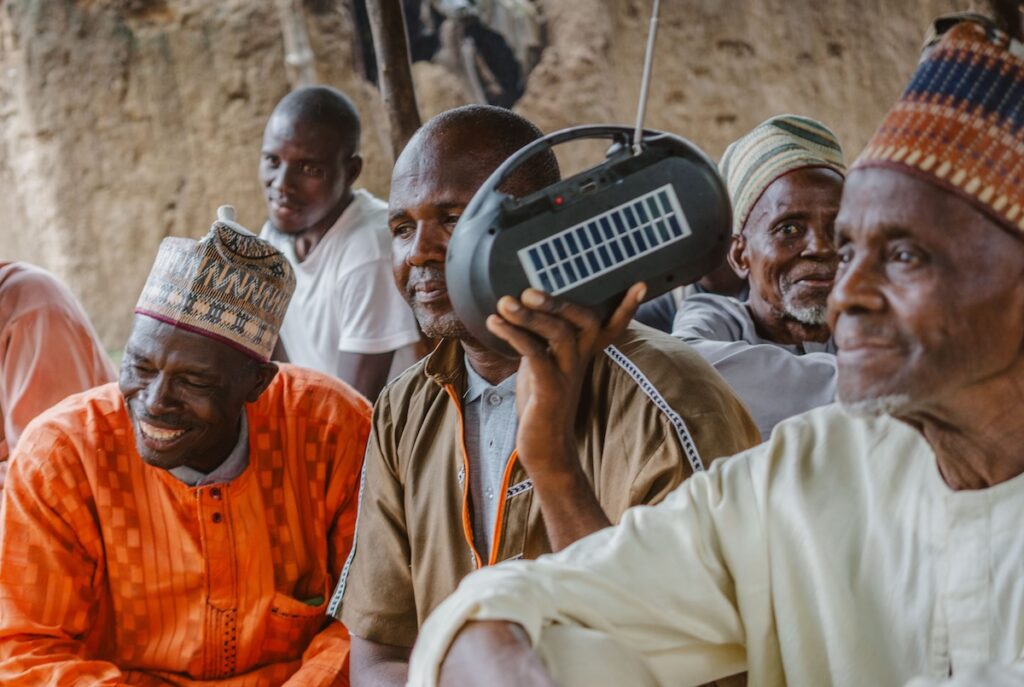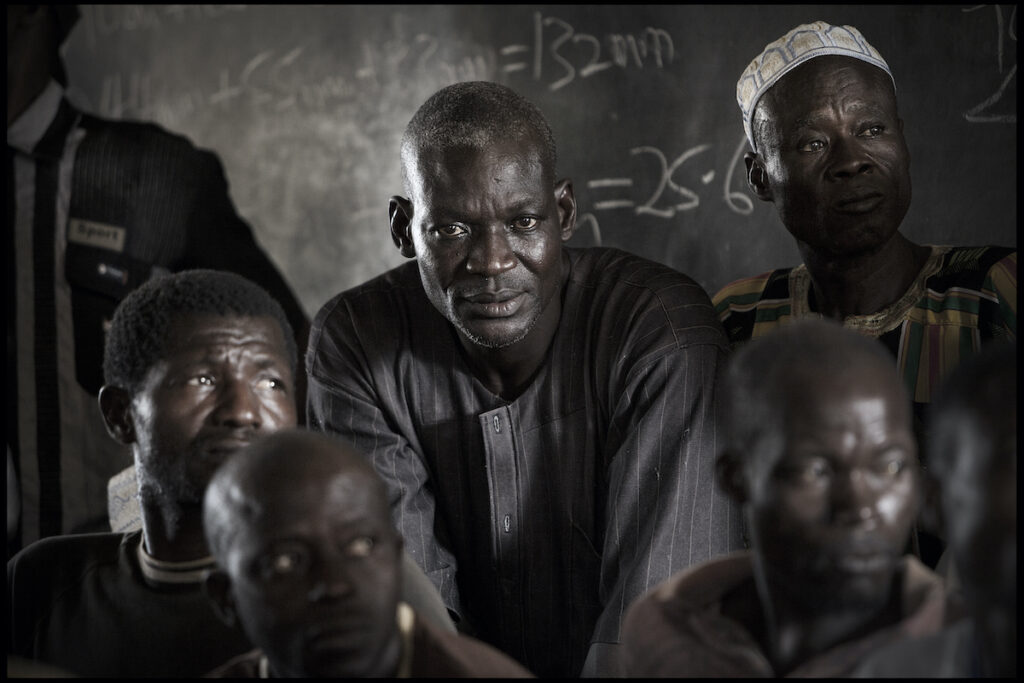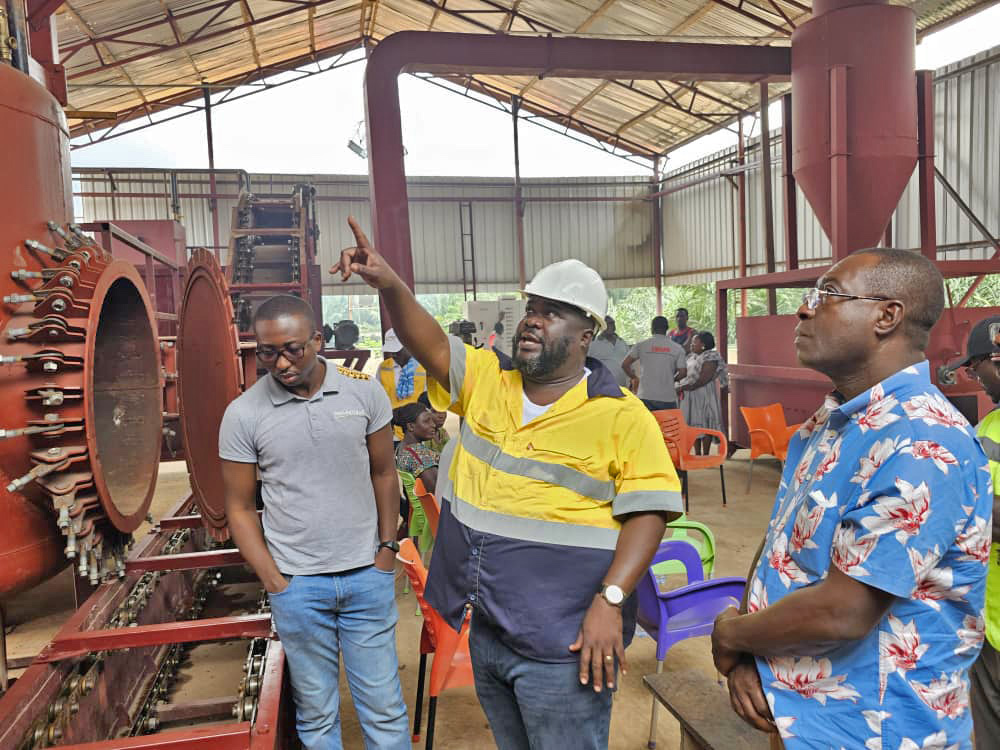In West Africa, Solidaridad’s work has been focusing on empowering smallholders to apply innovative solutions that improve their livelihoods while becoming better stewards of natural resources and the environment. In the last five years, the organization’s strategy provided a roadmap for advancing a sustainability agenda across five countries: Côte d’Ivoire, Ghana, Liberia, Nigeria and Sierra Leone.
Through the implementation of various programmes across the cocoa and oil palm supply chains, Solidaridad has been promoting good agricultural practices through practical training.
Improving on-farm productivity with best management practices
Under our oil palm programmes, training on best management practices such as ground cover management, pruning, canopy management, fertilizer application, and harvesting techniques have enabled rural farmers to increase the yield of fresh fruit bunches on their farms.
Sunday Oyama Odong, 45, is among the hundreds of farmers in Nigeria that have benefited from training that Solidaridad offered.
Before the training, I barely harvested half a ton of produce from my four hectare oil palm farm. But after a year of applying the new knowledge acquired, I harvested one metric tonnes of fresh fruit bunches from the same field.
Sunday Oyama Odong, Oil Palm Farmer in Nigeria
Sunday has over the last five years reinvested part of his farm income in two oil palm processing mills. This has increased his earnings from 100,000 naira (216 euros) in 2015 to 1,750,000 naira (3,782 euros) today. He describes this as the most significant change he has experienced in life.
Today, Sunday is able to meet the needs of his family and has seen his older son through university education.
Similarly, in Liberia, beneficiary farmers are reporting a two-fold increase in yield after implementing best management practices in their oil palm fields.
“From my last harvest, I could produce two barrels of palm oil as against one barrel in my previous harvest. I attribute this to the increased yield that resulted from the application of best management practices on my oil palm field”, says Edwin Zumba, an oil palm farmer in Liberia.
Edwin is now able to make enough income and savings from oil palm cultivation and processing. He says, this helps him to meet the needs of his household.
The stories of Sunday and Edwin resonate with many farmers who have benefited from oil palm programmes implemented in Côte d’Ivoire, Ghana, Liberia, Nigeria, and Sierra Leone; with funding from the Embassy of the Kingdom of Netherlands in Accra, the Swiss State Secretariat for Economic Affairs (SECO), Henkel, Aldi, Cérélia and RSPO Smallholder Support Fund.
Farmers become better stewards of the environment
Solidaridad does not only work to improve farmers productivity but also ensures their responsible use of natural resources, as well as resilience to the impacts of climate change.
In Ghana, more than 17,000 persons in 53 farming communities have become aware of climate change and how to adapt to its adverse impacts on farming and other production practices. The Ghana Dedicated Grant Mechanism project implemented by Solidaridad with funding from the World Bank, provided varying sums of small grants to 156 individuals to undertake sustainable, climate-smart initiatives. Among these were 50 smallholder cocoa farmers who used their small grants to implement agroforestry practices that mitigate climate change.
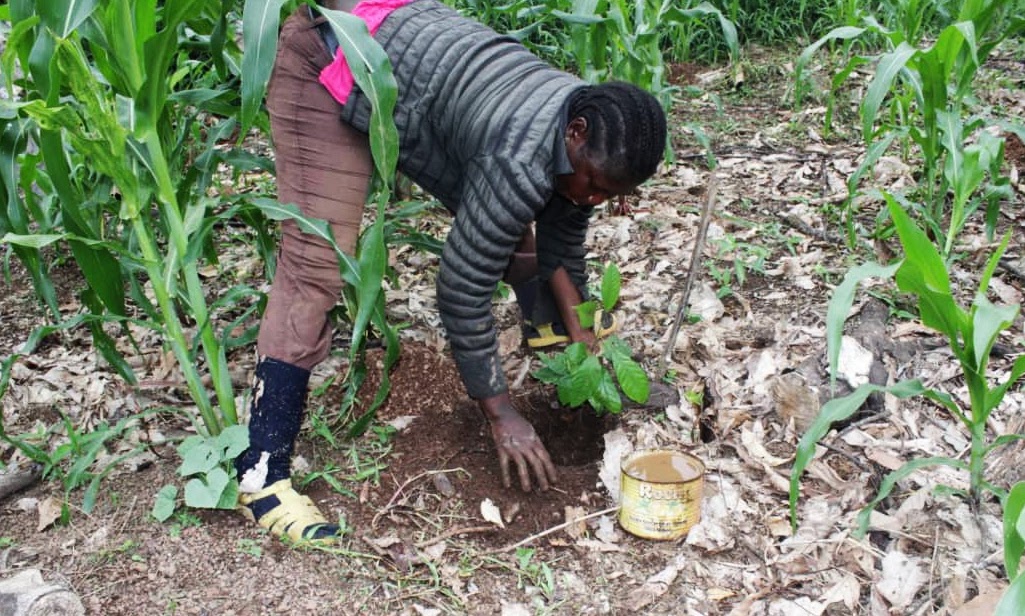
“For the first time in over 20 years of farming, I have incorporated trees and adopted the slash-and-mulch method in cultivating my cocoa farm,” says Florence Addae, a cocoa farmer.
I have come to learn new methods to provide the right conditions for cocoa while reducing the concentration of carbon dioxide in the atmosphere. This is my own small way of helping to reduce the excessive heat we have been experiencing lately.
Florence Addae, cocoa farmer
For 25-year-old Rebecca Mochia, inheriting her mother’s unproductive cocoa farm took a toll on her finances. However, with the new insight gained on climate-smart cocoa production, she recognized the need to incorporate more trees on her farm and switch to sustainable farming practices.
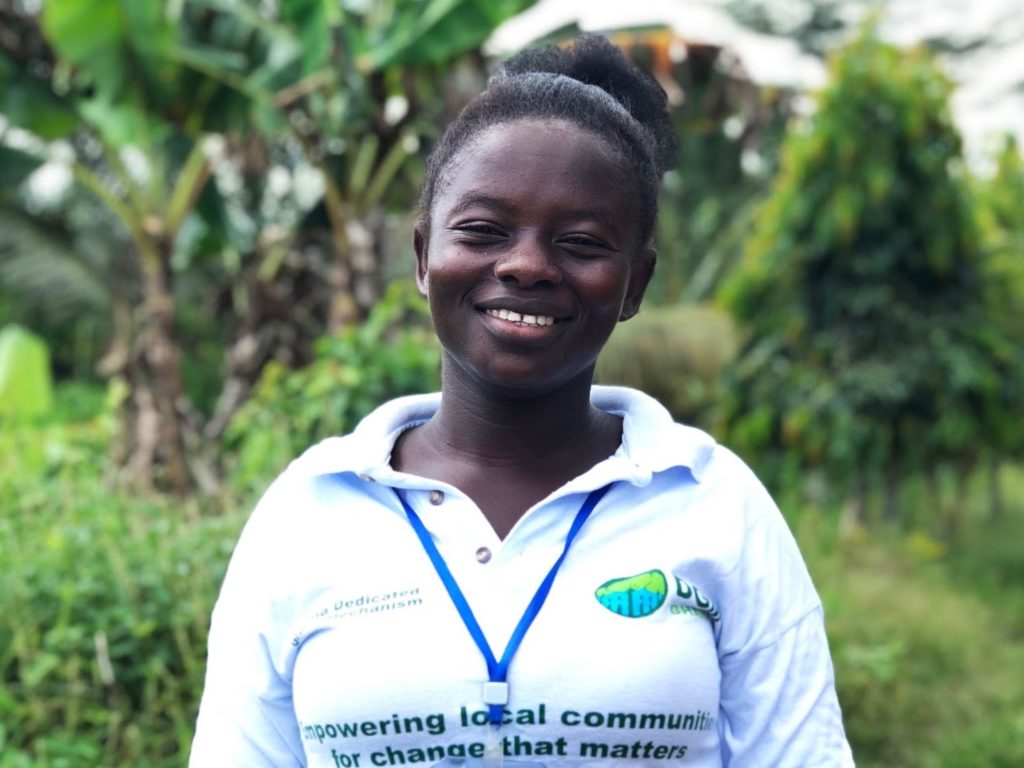
“With support from Solidaridad, I have rehabilitated my cocoa farm and incorporated 50 mahogany trees. I am confident that the trees will provide shade to enhance the productivity of my cocoa and also serve as a source of revenue once they mature in the future,” says Rebecca.
To date, 253,969 cocoa and oil palm farmers who have benefited from Solidaridad’s interventions are applying climate-smart production practices on 216,398 ha of land, contributing towards the advancement of the Sustainable Development Goal 13.

